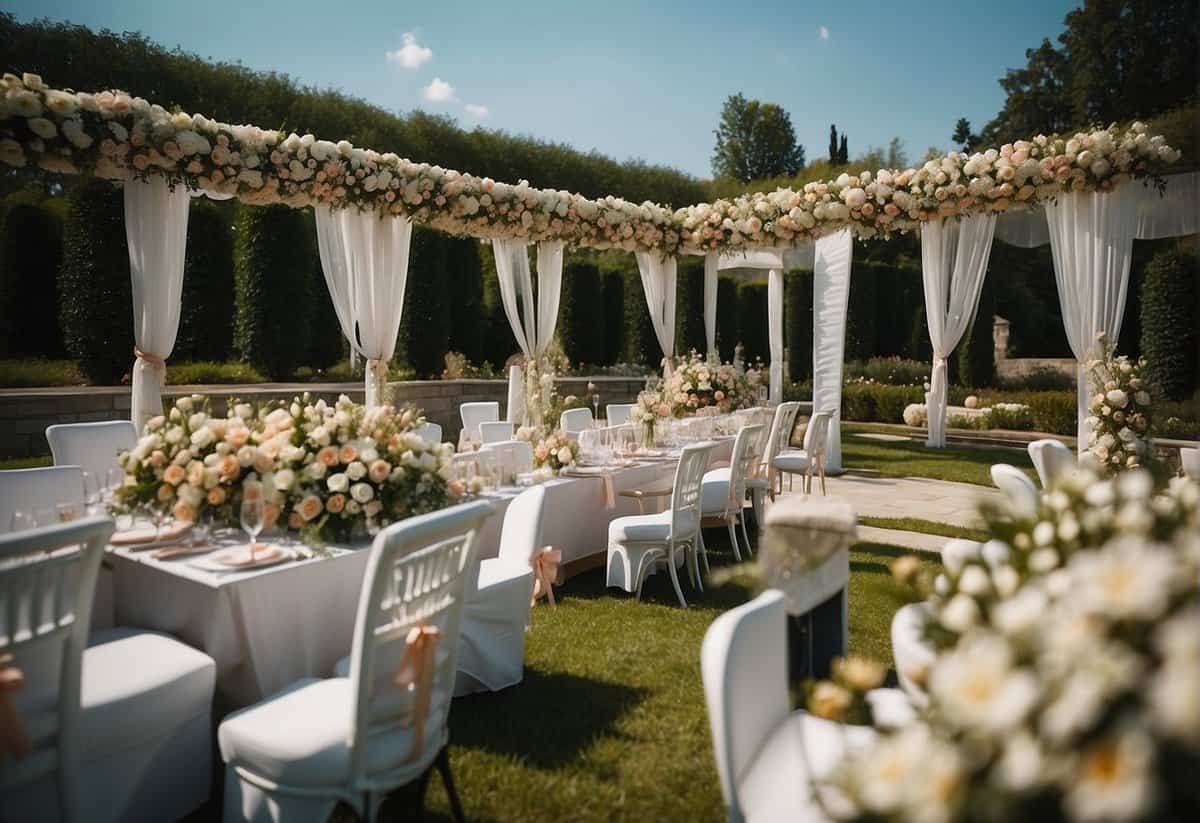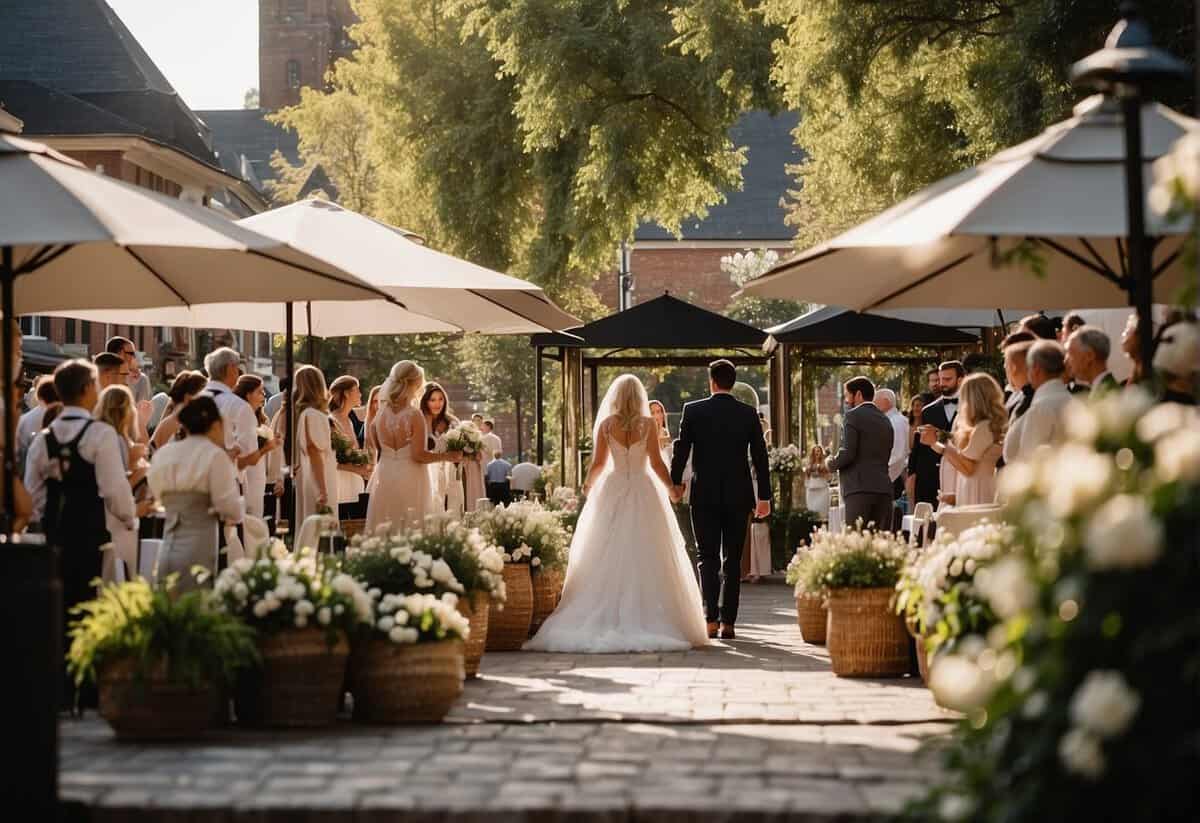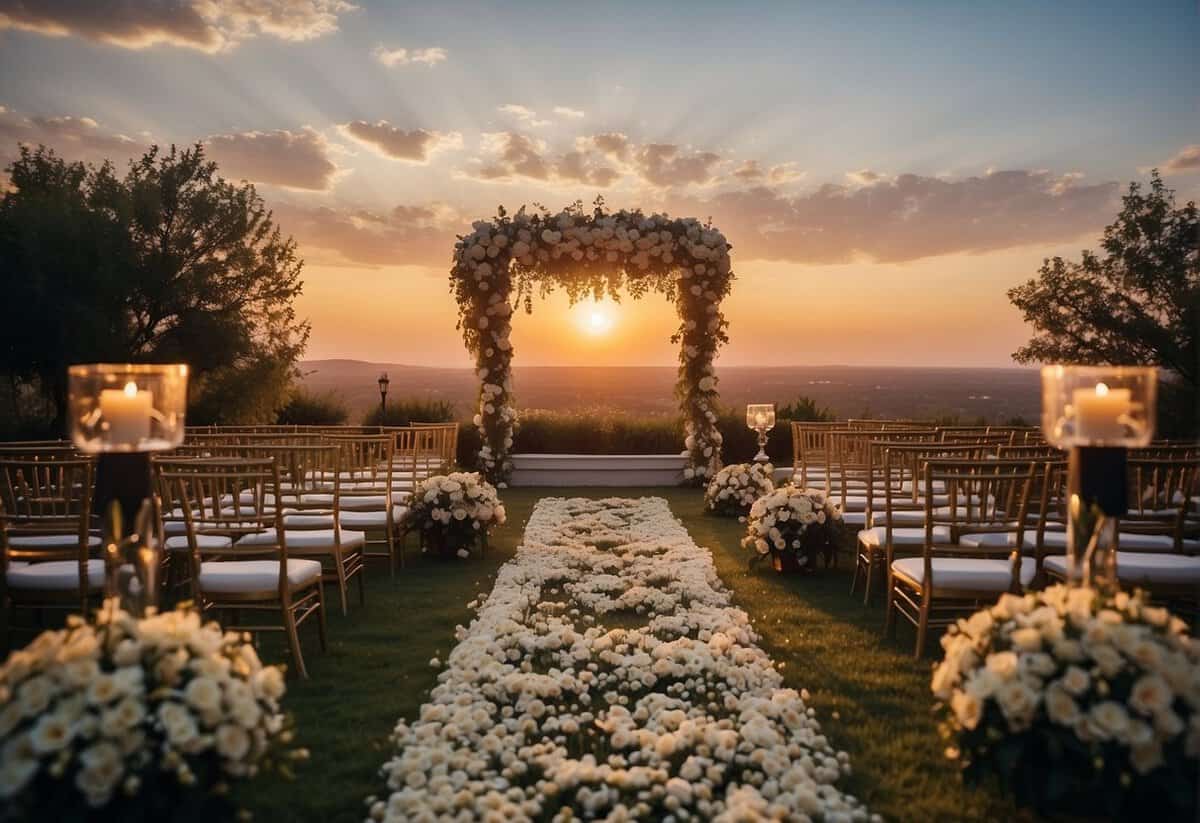What Is the Most Expensive Time of Year to Have a Wedding? Seasonal Price Surges Explained
When planning your special day, you might be surprised to discover that the time of year you choose to say “I do” can have a significant impact on your budget. Wedding costs can fluctuate based on the season, with certain months seeing a higher demand for venues and vendors. Knowledge of the most expensive times of year to host a wedding can be crucial in managing your wedding budget and making informed decisions.

Typically, late spring to early fall marks the peak wedding season, with June and September often cited as the most sought-after months. These months bring conducive weather for celebrations in many locations, which also means higher competition and costs for the essential elements of a wedding. The higher expenses during these periods are influenced by the increased demand for venues, photographers, caterers, and other vendors, all vying for their share of the wedding season’s clientele.
Key Takeaways
- Time of year can significantly impact wedding costs.
- Peak wedding seasons bring higher demand and costs for services.
- Select months are more popular, leading to increased competition for venues.
Understanding Wedding Seasons and Their Costs

When planning your wedding, knowing when peak wedding seasons occur can significantly impact your budget. Let’s dive into what times of the year are most and least costly for saying “I do.”
Peak Wedding Season Analysis
Peak wedding season typically extends from late spring to early fall, with notable demand during the months of September and October, each accounting for a sizable percentage of annual weddings. During this time, competition for venues and vendors increases, which can drive up prices. September and October are tied as the most popular months to get married, often requiring couples to book well in advance and allocate more of their wedding budget to secure their preferred details.
- Average Wedding Cost: Data suggests that during these popular months, the baseline cost for a wedding has been around $28,000.
Off-Peak Wedding Season Insights
Conversely, the off-season for weddings typically takes place during the winter months, such as January and February, and stretches to early spring. The demand for wedding services during these months is lower, leading to less competition and often more room to negotiate with vendors. Planning your wedding during these off-peak months can make a significant difference in your expenditures, possibly allowing you to allocate funds to other aspects or save for your future together.
- Budget-Friendly Tips: Choosing a date during the low season could mean that vendors are more willing to work within your budget, potentially reducing your overall expenses.
The Impact of Specific Months on Wedding Expenses

When planning your special day, the time of year you select can greatly influence the cost. Demand for venues and services varies with the seasons, and this fluctuation is directly reflected in pricing.
Expensive Months for Weddings
Certain months of the year are particularly popular for weddings, which typically drives up the cost due to increased demand. If you’re eyeing a summer wedding, particularly in June, July, or August, you should be prepared for potentially higher expenses. These months align with peak wedding season, which can mean paying a premium for venues and vendors. Similarly, September and October, encapsulating the allure of fall weddings, are also among the more costly options with their ideal weather and scenic beauty.
The end of the year, especially December, owing to the festive period, can see a spike in costs. This month is a favorite for its romantic winter atmosphere. Conversely, while you might expect savings in January and February, these months can also be pricey due to Valentine’s Day and the allure of a “new beginning” for the year to come.
Budget-Friendly Wedding Months
If you’re looking for ways to cut costs, consider planning your wedding during the less popular months. Typically, the spring months like March and April can be more affordable, though the weather might be less predictable. May, however, transitions into peak season, so it tends to be more expensive.
Looking towards the end of the year, November can offer savings as it’s a transition month leading into winter. While fall generally commands higher prices, this particular month might be an exception. Late winter months, after the holiday season and before the spring bloom, particularly January to March, can also be cost-effective choices, provided you’re open to a potentially cooler wedding experience.
Venue and Vendor Selection: Timing and Costs

When you’re planning your wedding, understanding how the time of year affects the cost of venues and vendors can be crucial for staying within your budget.
Venue Considerations Throughout the Year
As you begin to look at venues, remember that the season can significantly impact pricing. Summer months, especially June and August, tend to be peak wedding season, with venues often at their most expensive. For example, a summer wedding venue in the U.S. can cost between $5,000 to $12,000. Opting for a winter wedding, from December to February, can see venue costs dropping to a range of $2,000 to $6,000, potentially cutting your venue expenses significantly.
Choosing Vendors During High and Low Seasons
When it comes to vendors like caterers, photographers, and florists, booking during the off-season can also lead to better rates. Vendors may offer discounts to fill their calendars during less busy times. Keep in mind that the quality of service should remain high, regardless of the season. Busy summer weekends will challenge your budget for services like photography, catering, and transportation. Meanwhile, for services such as your wedding dress, cake, and alcohol, starting your search during low seasons may yield more negotiating power with retailers and suppliers, potentially stretching your dollar further.
Frequently Asked Questions

In this section, you’ll find answers to common questions about the timing and costs of weddings.
When is wedding season generally at its peak?
Wedding season typically reaches its peak from late spring through early fall, with June and September being some of the most popular months for couples to tie the knot.
Which months are considered less expensive for weddings?
If you’re looking to save money, consider planning your wedding during the off-peak months, typically November through April, excluding the holiday season when costs may be higher due to demand for venues and vendors.
How does the time of year affect wedding costs?
The time of year can significantly influence wedding costs due to factors like venue availability, demand for vendors, and seasonal decor. Peak wedding season often drives prices up, while the off-season may present more budget-friendly options.
Is there a month that’s historically lucky for weddings?
Some cultures consider certain months to be luckier for weddings than others. For example, many find May to be unlucky, while according to some old traditions, June is believed to be the most auspicious month for marriage.
What’s the typical budget for a wedding?
As of 2023, the average wedding cost — including both the ceremony and reception — is around $35,000. However, budgets can vary widely depending on personal preferences and the level of extravagance.
How can the choice of month impact wedding expenses?
Choosing a month during the off-peak season can reduce expenses across the board, from the venue to the vendors. Conversely, a peak season wedding often requires a higher budget due to increased competition for dates and services.

